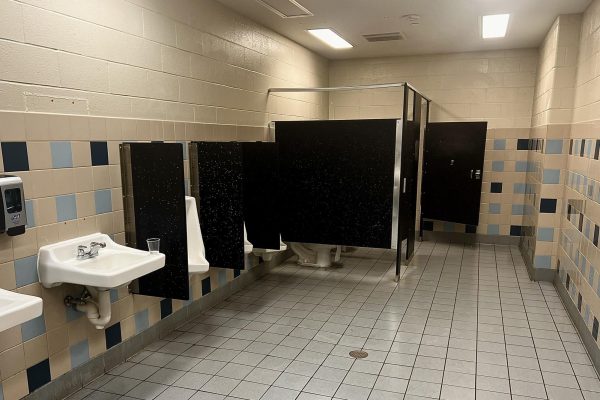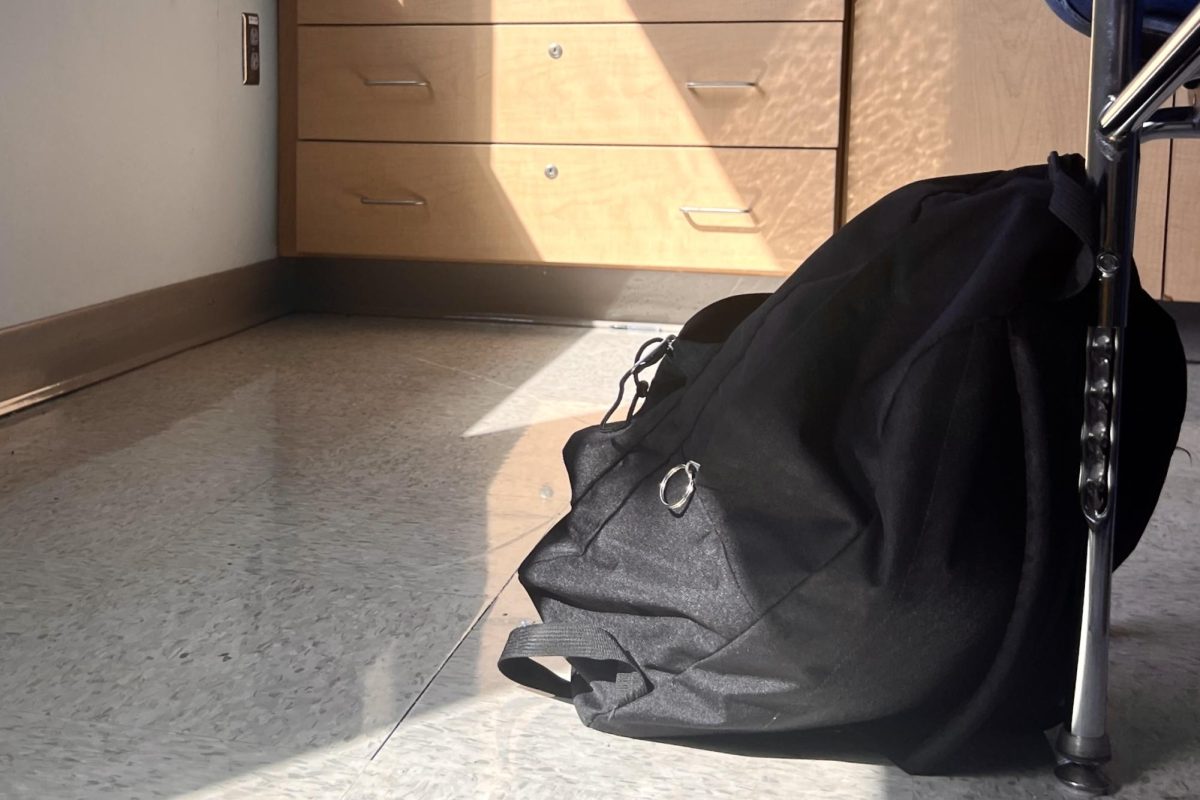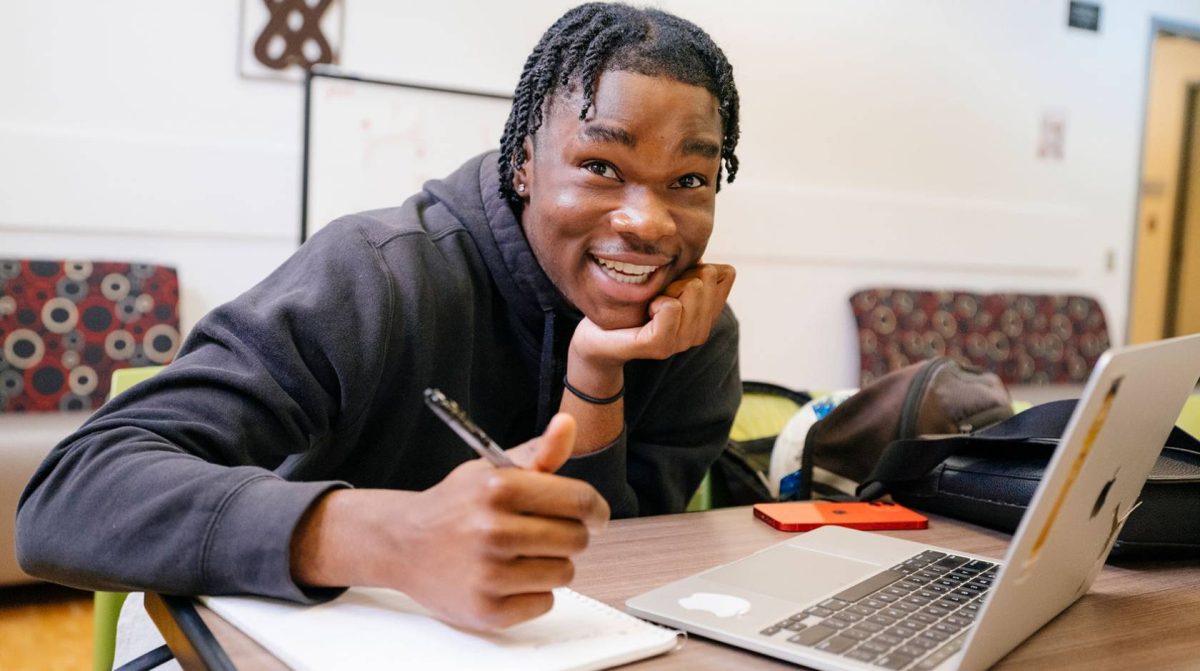At the beginning of the year, Linganore High School (LHS) instituted a policy that stated when there are six or more students in a bathroom, there is reasonable suspicion to search a students’ bags. This policy is a result of a rise in both e-cigarette use and gun violence in schools.
In the past 40 years, student rights in schools have been established or modified based on prior case law. The major growth in both e-cigarette use, school shootings, and wrongdoing in public schools have also prompted a number of rules or procedures set for safety.
In the famous case of New Jersey v. T.L.O. in 1984, a girl’s bag was searched because she was found smoking cigarettes in her school’s bathroom. It was argued that she was unlawfully searched when the principal went through her purse. However, the case found that it was a lawful search of a students bag.This also set the precedent that teachers and school staff have even greater authority to confiscate and search students bags under reasonable suspicion instead of the standard of probable cause, which applies to the rest of the public.
In the Frederick County Public School (FCPS) system, the rules are similar. Under FCPS rules document 400-59, an assistant principal or principal may search through a student’s bag or belongings if there is a reasonable belief that they are committing a crime or breaking school rules.
This ability to search students has helped those who had only tried e-cigarettes once or twice understand the consequences that will come with vaping.
Raeda Zietoon, an administrator at LHS, said, “[If] it was the first time or the second time that they had something on them, they never went back to doing it again.”
When enrolling in any Frederick County public school, one must sign a document that allows qualified staff to search the student if there is reasonable belief of misconduct.
“You guys signed a contract at the beginning of the year that basically signs your rights away,” Abby Berisford, LHS school resource officer, said.
According to law, a student forgoes rights to privacy when reasonable articulable suspicion (RAS) is met. This is different from probable cause because it allows for staff to have fewer restrictions on how and when they search a student’s bag.
School systems across the country have found the need to search bags has become vital due to the increasing risks of harmful weapons and substances in schools.
In the Ohio case, State v. Polk, a gun was found in a backpack of a student named Joshua Polk. The staff knew to look in the backpack because they found bullets in an unattended bag that belonged to the same person. Due to safety procedures they looked through the unattended bag. When they found the bullets, they then seized Polk’s actual bag and searched it to find the gun.
As the State v Polk ruling stated, “The sole purpose of the federal exclusionary rule is to deter police misconduct.” Because “students have a limited expectation of privacy,” staff are able to search students with fewer limitations than a police officer and face fewer consequences than a police officer if the search was deemed unlawful.
Since New Jersey v. T.L.O., schools have been able to become more permissive about when staff are allowed to search bags. In this particular case, the search of a student’s bag was necessary to ensure the safety of those in the school.
In the 2021-22 school year, there were 46 instances of school shootings in the United States. Between 2000 and 2022, there were 328 casualties in school shootings. During this time period, 131 people died and left behind grieving families. The data for school shootings has risen exponentially since 2001.
These rules are also necessary due to the upsurge in e-cigarette use in high schools. In 2020, 26.5% of reportedly used e-cigarettes (vapes). Schools need to be able to enforce their rules, but when e-cigarettes are easier to hide than normal cigarettes, it makes it very difficult to know who has an e-cigarette. This is especially true when there are a lot of students congregating in the restrooms.
“We all know what happens in the bathrooms here [at LHSl], and if one person’s doing it, chances are all of them are up to no good,” Berisford, said.
The ability for staff to search and seize students’ bags scares some people because it increases the possibility of being caught. Some students also feel that it is a necessity in order to prevent smoking and vaping.
“Probably the majority of the time I go in the bathroom I either see it or I smell it,” Jackson Hammock said. “I think it could be effective [to search students’ bags]. Like if staff sees something, then you know, search them and do it more often. I think it would help.”
Issues will always arise when discussing whether human rights are being violated by searching an individual’s property. Some students feel like their Fourth Amendment rights are being violated through this policy. The Fourth Amendment gives citizens the right to “be secure in their persons, houses, papers, and effects, against unreasonable searches and seizures”
This is especially important to some who hold their constitutional rights sacred. The idea that your rights are being violated for the “greater good” is something U.S. citizens have fought against for a long time.
“I understand why they do it,” said Charlotte Vanek, a student at Linganore. “But, I don’t think it’s fair to the people who don’t vape.”
Ultimately, students are able to refuse a bag search, but if they do, then they are suspended for three days. Punishment for refusing to be searched so people feel that they have to be searched.
“If they refuse…[it is]the school’s policy–and it’s all across the board for FCPS–that it’s a three day suspension,” said Zietoon.
Some students believe this is a violation to their liberties and that their freedoms are being diminished.Others believe that as long as individual students follow the rules, they should have nothing to be scared of.
“If you’re not doing anything bad, you shouldn’t be worried,” Alijah Flowers said.








